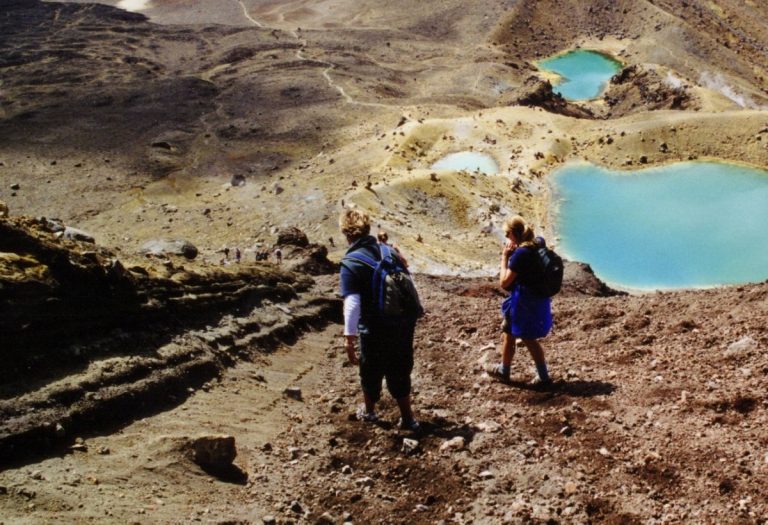
“I wanted to study something that had real-world application. I’m finding out what each crop needs for ideal growth and the areas most suited towards each crop. It’s research that could influence the future decisions of landowners and help to grow the region’s economy.” – Jonno Rau, Master of Science (Environmental Science) at the University of Waikato
Built on the principles of dynamism, distinctive character and internationalisation, the University of Waikato is dedicated to the deliverance of a truly elite education.
Ranked within the world’s Top 300 by QS University Rankings 2017 – with major strengths in the regions of Environment, Security (including cybersecurity and biosecurity), Agribusiness, Indigenous Studies, and Health, – Waikato’s world-leading credentials reflect its ability to prepare, challenge and inspire students from every region and all walks of life.
“Waikato alumni are making their mark here in New Zealand and globally,” says Jim Bolger, Chancellor of the university. “…I have been privileged to publicly recognize several who have distinguished themselves,” he adds.
“Others serve as leaders in major international corporations, teach at respected universities and schools, work as scientists, government officials, entrepreneurs, lawyers, performing artists and athletes.”
The institution’s Faculty of Science and Engineering has received global recognition for hosting some of the most advanced laboratory equipment, as well as for conducting and supporting some of the most powerful research studies to hit the modern world.
The School of Science, for example, a consolidation of the former Departments of Biological Sciences, Chemistry and Earth Sciences, tackles some of the most pressing issues that hang over us today and rewards us with an evidence-informed perspective of the world.

Source: University of Waikato
Research in the field of Chemistry covers a broad arena, incorporating everything from computational and analytical chemistry, to materials chemistry, geochemistry, environmental chemistry, and more. Waikato’s chemistry students also have access to first-rate, contemporary instrumentation, including the Electron Microscope Facility and the Mass Spectrometry Facility, to ensure students become adept in the use of the most current and powerful facilities.
Other investigations at the University of Waikato tackle a wide range of topics – within more environmentally-focused disciplines. Topics include Antarctic Research into soil development and community structure in extreme environments, Climate and Environmental Change, Coastal Marine Science particularly in urbanised estuaries; Environmental chemistry; Geomechanics; Hydrology; Land and Water Resources; Restoration of land, freshwater and marine systems including urban environments; Radiocarbon Dating; Sedimentary and Petroleum Geology; Soil Science; Volcanology; and everything in between.
It is because of this that comprehensive programmes in Environmental Science – like those on offer at Waikato – provide a lifeline in the form of understanding, letting us put our knowledge and expertise to the test as we employ the most effective solutions. The innovative, research-informed Environmental Science programme at Waikato crosses the existing borders of science, focusing in particular on the study of Ecology and Earth Sciences.
As a qualified Environmental Scientist or Technician, you will have the power to influence, both locally and globally, the management of our soil, ecological, marine, mineral and energy resources in the most efficient and sustainable manner. The Environmental Science programme at Waikato embodies the ideal route to reaching that esteemed professional level, offering a breadth and depth of study that would be difficult to find at any other higher education provider. Here, students delve into a number of fascinating topics, including:
Environmental Microbiology – Learning about how microorganisms function as the foundation of environmental processes
Environmental Modelling – Using computerised models to predict and understand fluctuations in diverse environments like estuaries, lakes, rivers, coastlines, climate and oceans
Land and Freshwater Environments – Delving into the management of natural resources that are required for human survival, biodiversity and wider ecological values
Marine Sciences – An exploration of marine organisms, environments and management
The course is also accompanied by cutting-edge facilities, ensuring participants have access to high-calibre teaching and stellar learning tools to ensure the ultimate academic experience. With round-the-clock access to state-of-the-art laboratories, you’ll soon become adept in the use of crucial equipment and techniques, working alongside some of the most knowledgeable and respected researchers, industry leaders and academics known by the world today.
And with two distinct study locations – Hamilton, based in the North central Island, and Tauranga, set amid the Bay of Plenty – Environmental Science students from Waikato benefit from living and learning in a real life living laboratory. New Zealand, after all, is consistently named the ultimate place to study the Earth and Environmental landscapes.

Source: University of Waikato
Established in 2011, for example, the Coastal Marine Field Station at Sulphur Point, Tauranga, sits among the bustle of the Bay of Plenty’s booming marine business. Forming an integral part of Waikato’s Environmental Research Institute, the station plays host to a wide range of teaching, monitoring, research and discovery activities, capitalising on the school’s unique and unrivalled setting for the most impactful learning results. In fact, the station’s role is so effective that in just six short years, it has become a major centre of marine excellence in the Bay of Plenty region.
Encompassing the perfect blend of world-class academics, exceptional research and a study location that truly is unparalleled, the University of Waikato shapes leading, global graduates who make waves in the professional sphere. Former students have forged success as dominant Agricultural Advisors, Biosecurity Officers, Coastal Resource Managers, Environmental Analysts and Scientists, Hydrologists, Oceanographers and beyond, paving the way to a brighter world and a sustainable way of life.
Follow the University of Waikato on Facebook, Twitter, Instagram and LinkedIn
Liked this? Then you’ll love these…
4 leading APAC Universities for Natural Science study
Living laboratories: Environmental Studies programs in remarkable locations







